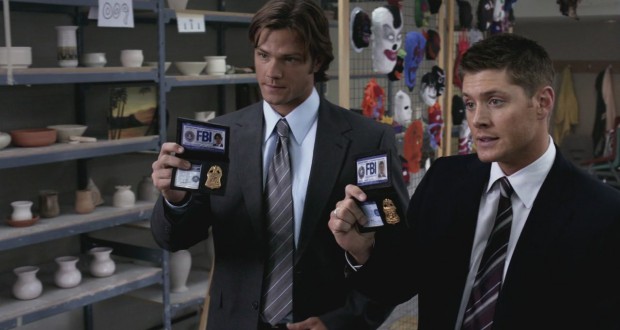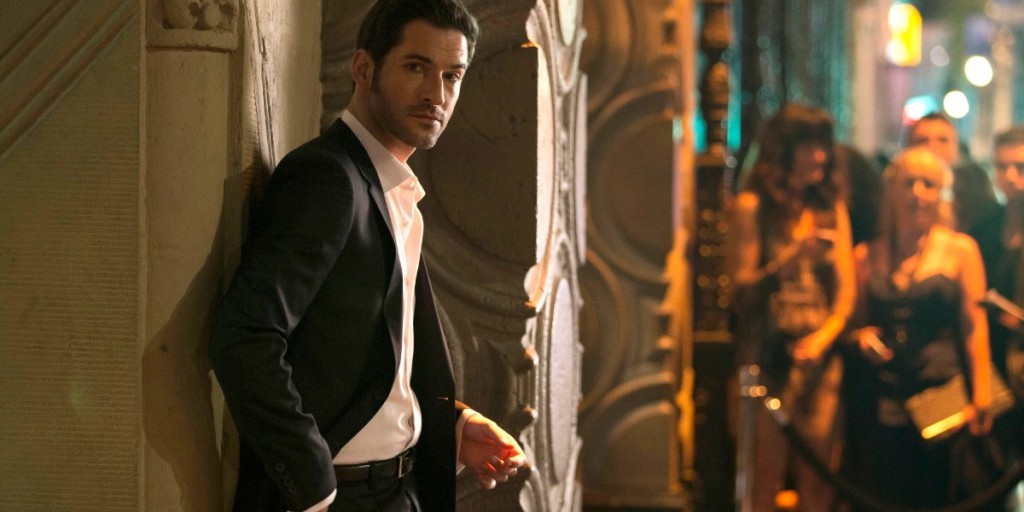Anyone who has watched television in the last decade or two has seen at least one procedural show. While police procedurals are the most common (such as Law and Order, Castle, NYPD Blue…), the procedural format can be applied to almost any genre. The foundational premise of the ‘procedural’ show is a focus on the nuts and bolts of solving a crime or mystery and punishing the guilty. The procedural format taps into some simple, expert ways of hooking audiences, but the more traditional procedurals also find it difficult to build a dedicated, loyal audience if they don’t develop longer narrative arcs.
In recent years, TV producers have found that the procedural format works particularly well for shows with a supernatural bent, where character solve mysteries or crimes of a supernatural nature. There are the obvious ones like iZombie, a police procedural with a helping of brains, or Grimm, while technically shows like Buffy the Vampire Slayer, Constantine, and Supernatural could also be considered procedurals. Buffy might not have been a part of a police force or other official organization (I don’t think the Watcher’s Council counts), but she still spent a great time on researching supernatural mysteries and then going out and putting down those dastardly vampires.
Recently, Fox’s adaptation of the Sandman spin-off comic Lucifer into a TV series has come under flack from fans after the studio has turned it into a police procedural. Instead of sticking to the story in the comics – which is epic enough for an ongoing series – Fox has added another element: Lucifer doesn’t just leave hell to hang out on Earth, he leaves hell to help the LAPD punish criminals. As io9 complained, ‘It’s a goddamn police procedural’. Changing the story from the source material for TV adaptation isn’t always a bad thing (iZombie is the case in point, brilliant show!), but I do understand why die-hard fans might take issue with it. But given how well the supernatural works with this kind of TV template, should the fans really be so worried?
‘Everything the police tell you in this town is a lie.’ – iZombie
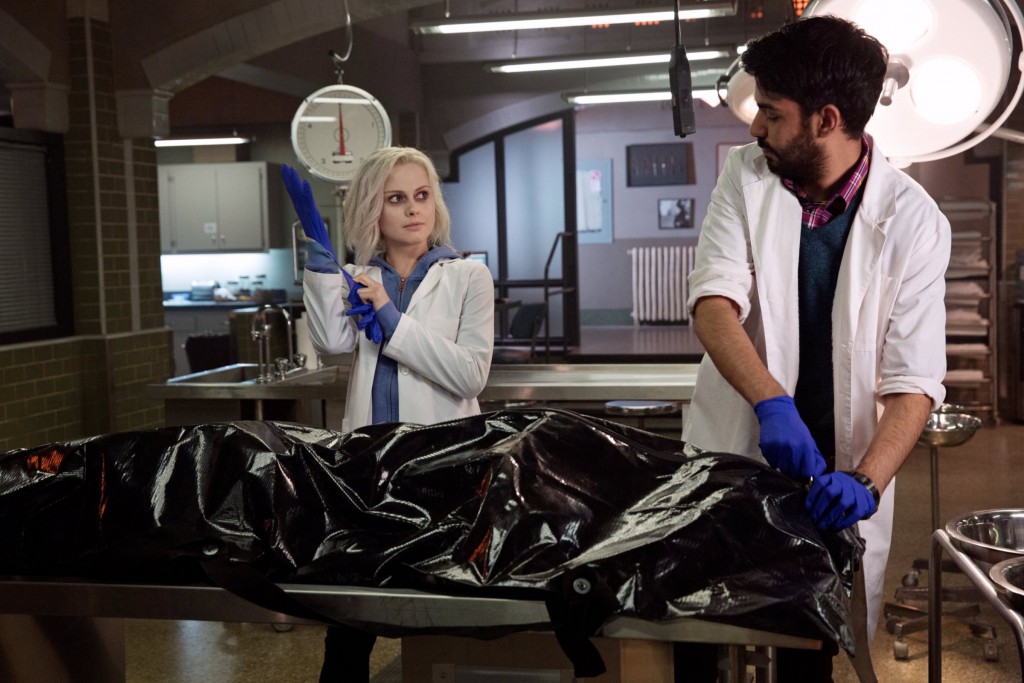 An easy way to create drama and suspense is to have a mystery. Something bad happens – but how? And who did it? And why? These questions keep the audience hooked. We want to know how it all went down and are eager to follow our protagonists as they work it out and defeat the bad guys. And what’s more mysterious than the totally unknown – which is why the format works so well with supernatural elements.
An easy way to create drama and suspense is to have a mystery. Something bad happens – but how? And who did it? And why? These questions keep the audience hooked. We want to know how it all went down and are eager to follow our protagonists as they work it out and defeat the bad guys. And what’s more mysterious than the totally unknown – which is why the format works so well with supernatural elements.
In the world of reality, we don’t know much (or anything) about the supernatural, so for most of a show’s audience, almost anything in a supernatural series is going to have some mystery attached to it. And the beauty of it is that there can be so many different kinds of baddies – that immediately makes it more compelling. The powers of the bad guys or even how the murder or crime went down – or even who/what the bad guy is and what they want – are all potentially unknowns in the supernatural procedural world. Throw that in with keeping the supernatural a secret from the more mundane world and you’ve really got an engrossing series on your hands.
‘If the apocalypse comes, beep me.’ – Buffy the Vampire Slayer
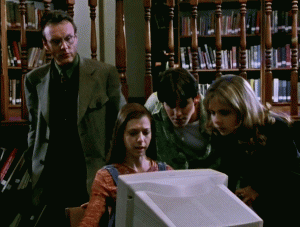 On TV, brevity is key. You want to set up your premise with as little explanation as possible. And what better way to do that than rely on one of the most basic story telling tropes of all: good and evil? And a supernatural personification of that very dichotomy?! If a character is fighting the monsters, they are generally the good guys. Now that’s what you call an incredibly easy way to ensure your audience knows who the protagonist is.
On TV, brevity is key. You want to set up your premise with as little explanation as possible. And what better way to do that than rely on one of the most basic story telling tropes of all: good and evil? And a supernatural personification of that very dichotomy?! If a character is fighting the monsters, they are generally the good guys. Now that’s what you call an incredibly easy way to ensure your audience knows who the protagonist is.
Fighting against evil is also a rather noble occupation, which helps to get the audience on side. The protagonists immediately epitomize popular the heroic qualities audience so enjoy encountering. This is especially so when establishing an antihero as your protagonist – even if they have questionable qualities, if they are presented as currently trying to fight against evil, it helps to win the audience over. Procedurals are great at using this piece as a way to colour all the protagonist’s actions and push aside potentially murky ethical questions. The end justifies the means, after all. And in a supernatural context, more often than not it involves saving the world, so a little murkiness is forgiven.
‘I hate to break it to you, O Impotent One, but you’re not the Big Bad anymore.’ – Buffy the Vampire Slayer
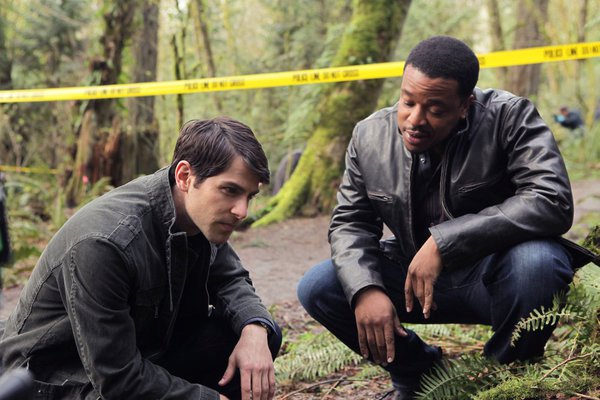 Back in the day, having discrete episodes was the way of television. It was too easy for people to miss an episode and no reliable way for them to catch up. This has made for an evolution of television. The problem with making a series with this limitation in mind is that it doesn’t necessarily keep the audience on the hook to keep coming back and watching week after week. As a result, TV has evolved. Now, most series develop narrative arcs with threads that run through an entire season, precisely so the audience can’t miss an episode.
Back in the day, having discrete episodes was the way of television. It was too easy for people to miss an episode and no reliable way for them to catch up. This has made for an evolution of television. The problem with making a series with this limitation in mind is that it doesn’t necessarily keep the audience on the hook to keep coming back and watching week after week. As a result, TV has evolved. Now, most series develop narrative arcs with threads that run through an entire season, precisely so the audience can’t miss an episode.
The trouble with a strict procedural series is that they are very much of the former style of TV – episode to episode not much changes. There’s a bad guy of the week (or monster of the week in the supernatural world), with no consequences feeding into the rest of the season. Look at this year’s procedural shows. Something like iZombie benefitted from Blaine as a ‘big bad’ (a concept pioneered by Buffy, though technically iZombie isn’t supernaturally created zombies but scientifically, but we’ll lump it together for the sake of argument) throughout the season, whereas Constantine struggled to find an audience with its more traditional, episode to episode take on the procedural.
Mystery hooks an audience, but too much mystery and your audience will be asking too many questions. Combining a potentially confusing theme of the supernatural with a grounded, familiar episodic structure allows for supernatural procedurals to find the right balance between hooking their audience while remaining relatable. I’m not sure I’d be complaining about Lucifer’s restructuring to this format – after all, what works in one medium might not work as well in another.
 Pop Verse Pop Culture Universe
Pop Verse Pop Culture Universe
